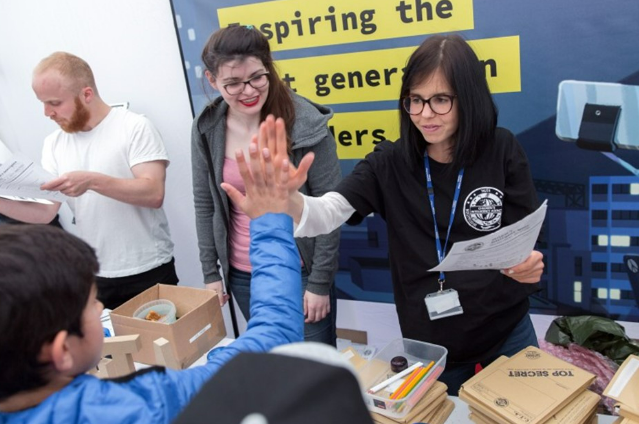
Image Courtesy Jess Wade
London-based physicist, Jessica Wade has created over 1,600 Wikipedia entries about historically underrepresented women scientists and has strong opinions and how to encourage young women to pursue careers in STEM.
The London-based physicist has become something of a phenomenon in her own. Thanks to her very public effort to encourage more women to pursue careers in science, technology, engineering, and mathematics.
Wade rose to prominence when she began penning the Wikipedia biographies of women and minority scientists underappreciated by their male colleagues in the field, the general public, and even their employers.
She raised her voice in the context of the rising need for gender parity in STEM fields as the number of her Wikipedia articles increased into the dozens and eventually the hundreds. She was honoured with honours and recognition and even received a nod from Wikipedia's creator, Jimmy Wales.
Not everyone in the Wiki community approved of her actions. The most influential people in the Wiki community erased some of her entries. Later, it was revealed that some of the ladies she profiled were deemed 'unknown'.
To cite just one example, we can consider Clarice Phelps. When Wade learned about the young black nuclear chemist, she wrote a Wikipedia article about the Team's discovery of a new element at Oak Ridge National Laboratory. Phelps' Wikipedia page was repeatedly removed and re-instated. Eventually, Phelps' Wikipedia page is now permanently restored.
As Wade works to increase awareness of women in STEM fields, she also has ideas about how to equip the next generation better.
Wade also stated in an interview, 'People assume girls don't choose science because they are not inspired.' Girls are already showing an interest. It's more about getting parents and educators on board and educating pupils about various science-related occupations.
As per a survey conducted by the American Association of University Women, only 28% of U.S. workers are female in STEM fields and only 20% of engineering and computer science students are female. The institution works to voice the cause of gender equality. It also highlights the issue of 'Unequal Pay for Equal Work'.
Ultimately, we don't only need to increase the number of girls choosing science, we need to increase the proportion of women who stay in science. Colleges and universities should also heed matters such as bullying and sexual harassment.
It's important as we are designing new technologies for global problems. It is synergizing the people together to reflect the societies they have served. Gender equality is important in one corner but simultaneously it's also important to increase the number of engineers and scientists as the world desperately needs them.
Despite the obstacles faced by women in pursuing science and technology, the world is now broadening its narrow myopic vision of the need for gender equality and female education together with the recognition they deserve.
. . .
References:
